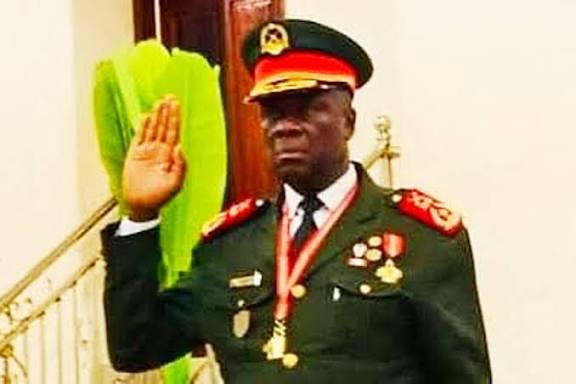Guinea-Bissau’s Ousted President Embaló Arrives in Senegal After Military Coup
Guinea-Bissau’s deposed President, Umaro Sissoco Embaló, has arrived safely in Senegal following his release by the military junta that overthrew his government earlier this week. Senegal’s Ministry of Foreign Affairs confirmed that Embaló landed late Thursday aboard a chartered military flight arranged after negotiations led by the Economic Community of West African States (ECOWAS).
The transfer comes amid heightened tensions in Guinea-Bissau after Wednesday’s coup, which took place just hours before the expected announcement of provisional results from the country’s presidential and parliamentary elections. The military has since suspended the electoral process and blocked the publication of the results.
A new transitional leader, General Horta N’Tam, was sworn in on Thursday. The army chief of staff will head the country for a one-year period. In his first address, Gen. N’Tam claimed the intervention was necessary to prevent a plot by unnamed politicians allegedly backed by a “well-known drug baron” to destabilise the nation. The junta also imposed a night-time curfew, banned public protests, and temporarily closed land, air, and sea borders before reopening them hours after the swearing-in.
Guinea-Bissau, situated between Senegal and Guinea, has long battled political instability and is widely known as a key transit hub for international drug trafficking. Since gaining independence from Portugal in 1974, it has witnessed at least nine coups or attempted coups.
Both Embaló and his main rival, Fernando Dias, had claimed victory in Sunday’s presidential poll. Government sources told the BBC that Dias, former Prime Minister Domingos Pereira—who had been disqualified from contesting—and Interior Minister Botché Candé were also detained.
The African Union and ECOWAS have strongly condemned the coup, urging a swift return to constitutional order. UN Secretary-General António Guterres expressed deep concern and called for the “immediate and unconditional restoration” of democratic governance.
Tension remained high in Bissau on Thursday, with shops and markets shut as soldiers patrolled the streets, according to AFP.


